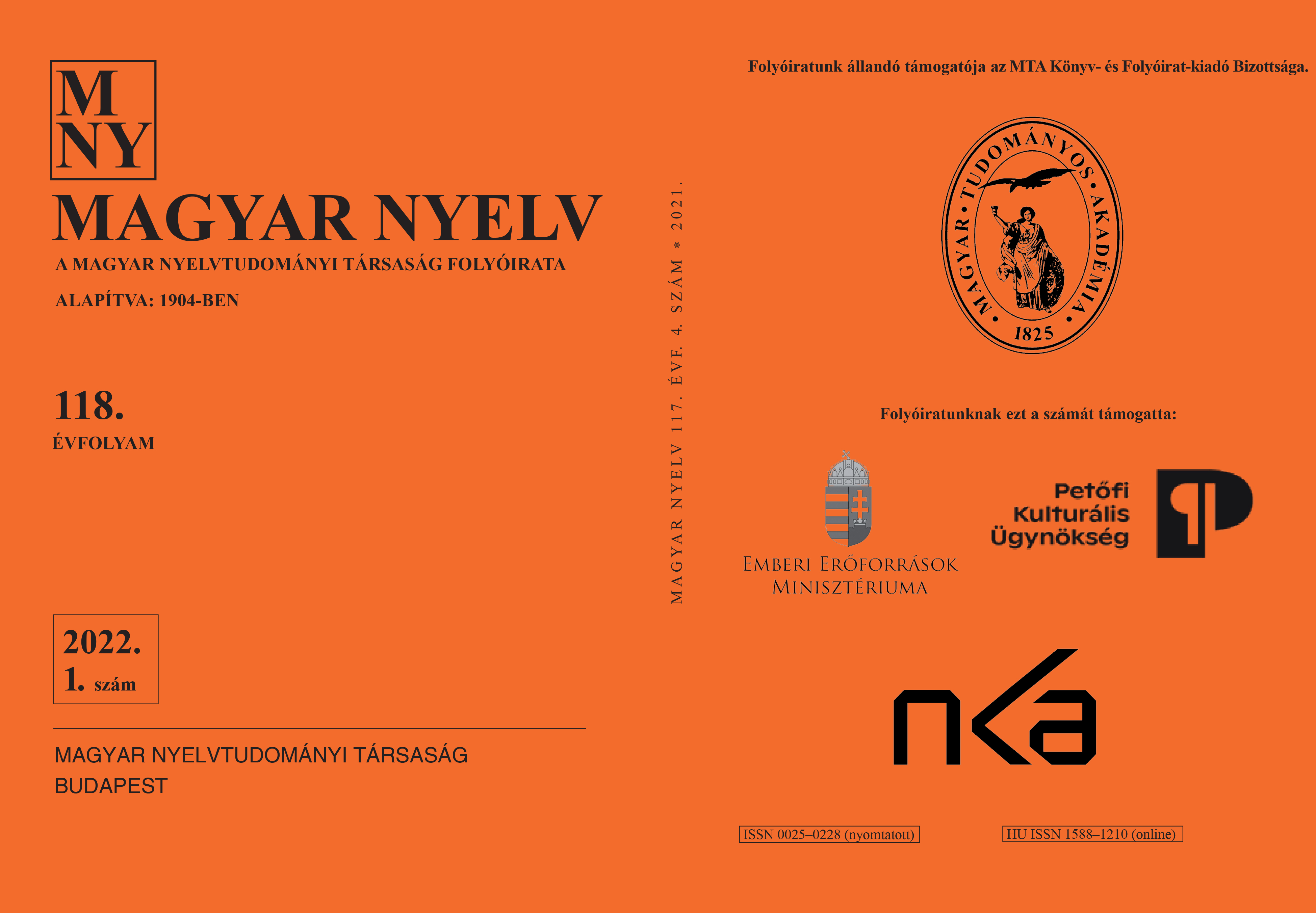Opening of the conference
DOI:
https://doi.org/10.18349/MagyarNyelv.2022.1.2Keywords:
experience and expectations, language history, Loránd Benkő, oeuvre, scholarly influenceAbstract
The present opening of the conference on Loránd Benkő’s scholarly oeuvre emphasizes his epoch-marking achievements in the research of Hungarian language history. Benkő paid attention to the smallest data with philological accuracy, while he concentrated on, and presented with colleagues, a large-scale and detailed synthesis of the totality of the history of the Hungarian language. The conference, held on the centenary of Benkő’s birthday, has a double perspective, viewed from the relationship between experience and expectations, in Koselleck’s sense. On the one hand, the presentations reconstruct Benkő’s historical perspective, determined by his own experiences and scholarly knowledge. On the other hand, the talks set up the present-day perspectives on how Benkő’s scholarly oeuvre influences post-millennial Hungarian linguistics. Both perspectives focus on the linguistic past in a scholarly framework, but look at the future, too.
Downloads
Published
Issue
Section
License
Magyar Nyelv is a Diamond Open Access periodical. Documents can be freely downloaded and duplicated in an electronic format, and can be used unchanged and with due reference to the original source. Such use must not serve commercial purposes. In the case of any form of dissemination and use, Hungarian Copyright Act LXXVI/1999 and related laws are to be observed. The electronic version of the journal is subject to the regulations of CC BY-NC-ND (Creative Commons – Attribution-NonCommercial-NoDerivatives).
The journal permits its authors, at no cost and without any temporal limitation, to make pre-print copies of their manuscripts publicly available via email or in their own homepage or that of their institution, or in either closed or free-for-all repositories of their institutions/universities, or other non-profit websites, in the form accepted by the journal editor for publication and even containing amendments on the basis of reviewers’ comments. When the authors publicize their papers in this manner, they have to warn their readers that the manuscript at hand is not the final published version of the work. Once the paper has been published in a printed or online form, the authors are allowed (and advised) to use that (post-print) version for the above purposes. In that case, they have to indicate the exact location and other data of the journal publication. The authors retain the copyright of their papers; however, in the case of an occasional secondary publication, the bibliographical data of the first publication have to be included.



